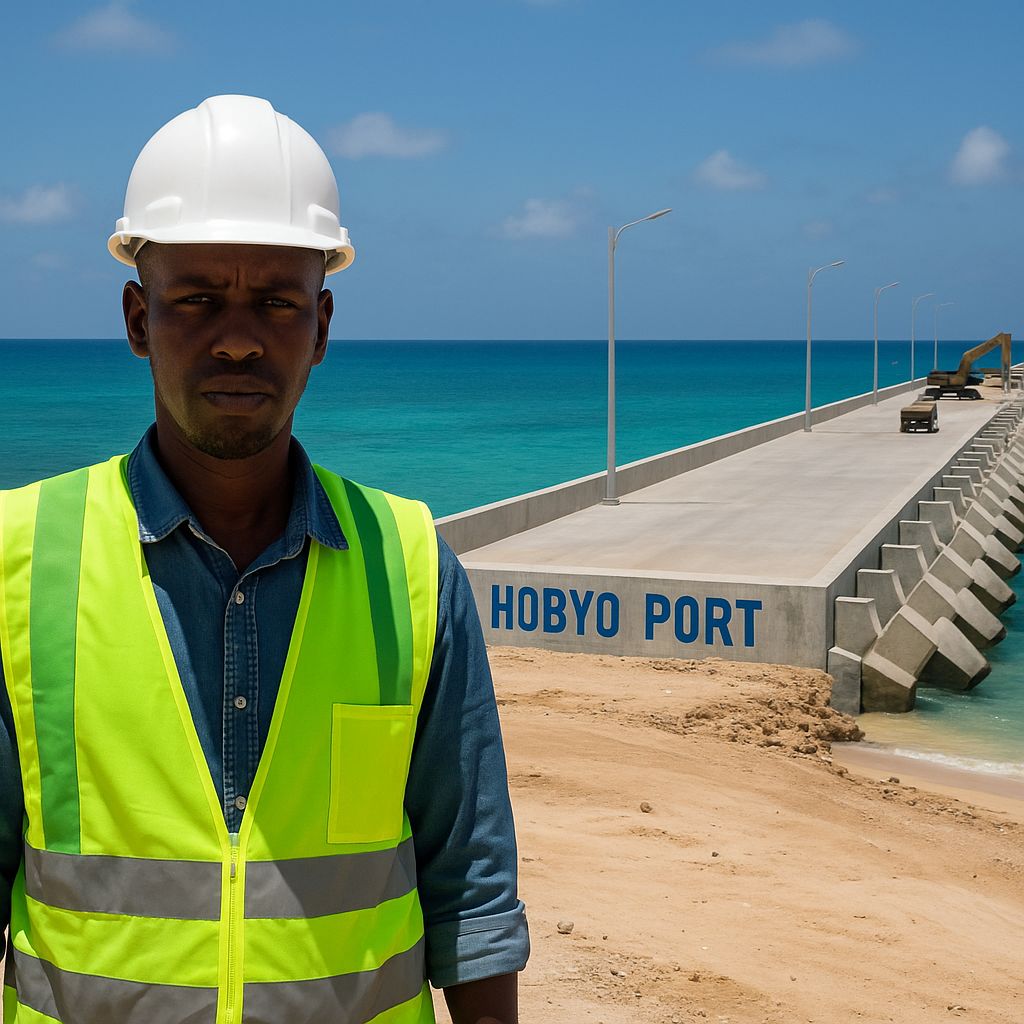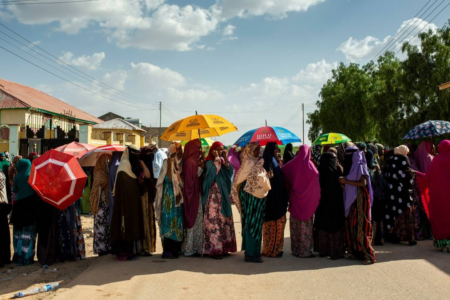Somalia infrastructure developments are leading the charge with major transformations.
The country’s renewed focus on sustainable development is laying the groundwork for economic revival and regional leadership.
With upgraded ports and highways to expanded digital networks and renewable energy.
Strategic Projects Driving Somalia Infrastructure in 2025
Under the national initiative known as Somalia Infrastructure 2025, several transformative projects are currently in motion:
1. Hobyo Port Expansion
Located along Somalia’s central coastline, Hobyo Port is being modernized to handle larger vessels and increase trade capacity.
Once completed, the port is expected to become a strategic gateway to international markets, reducing reliance on neighboring countries for imports and boosting Somalia’s maritime economy.
2. Mogadishu–Galkayo Highway
This critical highway is one of the most ambitious road infrastructure projects in Somalia.
Funded partly by the African Development Bank, Mogadishu–Galkayo road will enhance national integration, streamline logistics, and improve access to essential services for rural communities.
3. Digital Connectivity and Renewable Energy
As part of Somalia infrastructure 2025, the government is investing heavily in undersea fiber-optic cables and solar energy infrastructure.
These efforts aim to expand internet access, improve rural electrification, and support emerging sectors such as fintech and digital education.
Especially important for Somalia’s youthful population.
Why Infrastructure is a Key Factor in Somalia’s Future
With over 70% of Somalis under the age of 30, improved infrastructure offers a pathway to job creation, poverty reduction, and youth empowerment.
Better roads and energy systems not only enable domestic economic activity but also attract investment from the Somali diaspora and international donors.
Additionally, improved logistics and transport infrastructure will enhance Somalia’s role within the Horn of Africa trade corridor, strengthening its position in regional commerce.
International Support and Strategic Partnerships
The success of Somalia infrastructure 2025 depends heavily on international cooperation. Major partners include:
- World Bank & IMF – offering debt relief and infrastructure financing
- Turkey – providing expertise in airport and road construction
- UAE & Qatar – investing in port and energy development
- China – contributing to digital and transportation projects
These collaborations are vital to ensuring project sustainability and capacity-building.
Challenges and Opportunities Ahead
While progress is clear, Somalia continues to face significant challenges—including security concerns, political instability, and funding limitations.
However, the country’s leadership remains committed to long-term development.
The focus now must shift to ensuring transparency, climate resilience, and inclusive growth in all infrastructure efforts.
Somalia infrastructure 2025 is more than a development plan—it is a blueprint for national renewal.
As key projects move forward, Somalia is poised to emerge as a competitive, connected, and resilient nation in East Africa.








